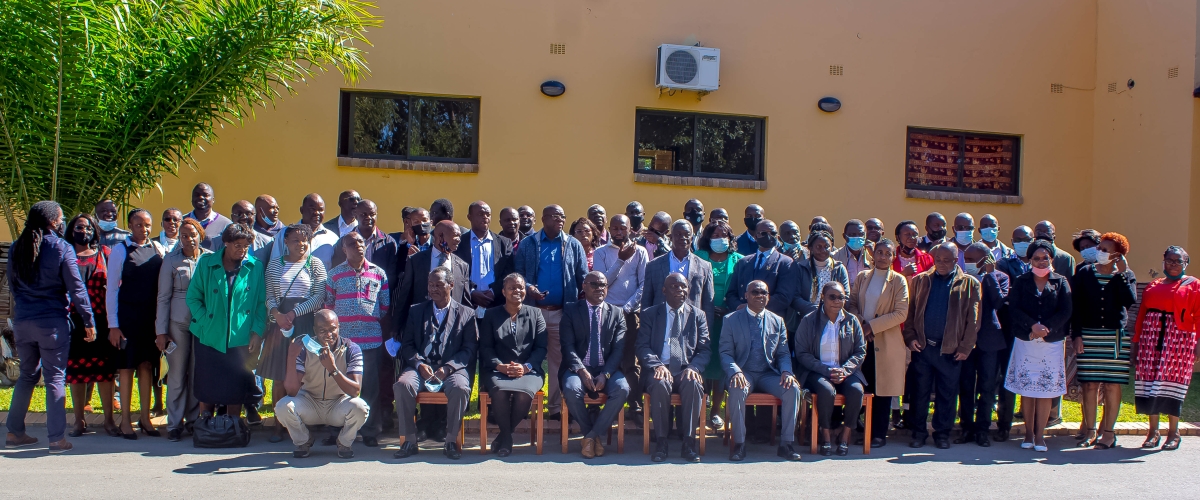
By Dorcas Kabuya Chaaba
The University of Zambia (UNZA) is the highest learning institution on the ground established on the principle of Zambianisation. Among the schools of economic importance at UNZA is the School of Agriculture which had its first students in 1968 but was officially opened in 1979 during the rule of the late first Republican President, Dr. Kenneth Kaunda.
Currently, the University through the School of Agriculture has graduated good quality Doctor of Philosophy (PhD) students and is recognised as the highest and best agricultural training institutions locally and outside the country. However, the world has been continuously changing and demanding innovative ideas in all sectors of the economy agriculture inclusive. There is an urgent call to make the courses in the School of Agriculture fit into the ever demanding needs of the 21 first century.
Additionally, the Zambian agricultural sector is in need of innovators, entrepreneurs and hardworking employees to fill the identified gaps and offer the much needed advisory service to farmers in order to feed the growing population.
It is against this backdrop that UNZA and MUSIKA, an institution which supports investments in agricultural market, with a particular focus on smaller holder and emerging farmers signed a Memorandum of Understanding (MOU) in 2019 under the Entrepreneurial Skills Training Enhancement Programme to review the agricultural courses to make them meet the current demands of the market.
The Dean in the School of Agricultural Sciences, Benson Chishala, noted that a weakness had been identified in the school curriculum adding that students were not practically prepared with innovation and entrepreneurship skills. Dr. Chishala indicated that it was high time the institution changed or reviewed its curriculum to strengthen specialisation. “The School of Agricultural Sciences like any other school in the University has the capacity to produce graduates with the acumen of being job creators, and this curriculum review is the foundation to achieving that goal,” he emphasised.
Dr. Chishala was however saddened that most students who pass through the institution look for jobs rather than being job creators for themselves and others, a situation he described as unfortunate. And UNZA Vice Chancellor, Luke Mumba, revealed that the school of agricultural last reviewed its curriculum comprehensively decade ago adding that there was need to be mindful in training students to keep up with the changing global trends.
Professor Mumba added that a needs assessment survey was conducted with support from various stakeholders to ensure that the knowledge gained from interactions increased the institutions outreach activities to the wider society. “The review of the curriculum is an important activity as it offers an opportunity for any learning institutions to remain relevant in attracting students,” he said.
Professor Mumba said while UNZA is supposed to be a reservoir of knowledge and catalyst in the development, this could not be achieved if students restricted to what they learnt as they pursuit their certificates.
“The world is changing, so our training strategies should also adapt. The review should be more pragmatic and instil current demands into our programmes,” he underscored.
He further added that the business as usual classroom lectures should be a thing of the past and emphasised on hands on practical learning during the course of the programmes.
Professor Mumba stressed that the curriculum review should not only be on how UNZA can make the learners appreciate the content but should also involve changing the complete mind-set of lecturers and learners by creating a learning by doing environment.
The Vice Chancellor said this in a speech read on his behalf by Director of Quality Assurance from the University, Dr. Jonathan Tambatamba.
Meanwhile MUSIKA Managing Director, Reuben Banda, noted that the institution’s commitment to towards the partnership remains as strong as it was from inception when the MOU was signed with the University despite that challenges encountered through the outbreak of the COVID-19.
Mr. Banda noted that the Entrepreneurial Skills Training Enhancement Programme added a new and exciting dimension to MUSIKA’s market based approach to development by providing the opportunity to extend its support to institutions of higher learning like UNZA that show willingness to adapt to the changing needs of learners globally and the industry in general.
“MUSIKA’s financial and technical support to the school of Agriculture is meant to among other things strengthen staff capacity to deliver Entrepreneurial trainings to students,” he indicated.
Mr. Banda stated that the review of the school curriculum would lay the foundation upon which other schools within the University, as well as other learning institutions would build on as they get motivated to make similar changes meant to increase their relevance at industry level
“The review of the curriculum will help accelerate progress towards achieving the key objective of the partnership and move the process towards the development and adaptation of a new curriculum that will empower learners in the area of entrepreneurship to enable them run successful agribusiness even before they graduate,” he stressed.
He said this in a speech read on his behalf by MUSIKA Director of Finance, Victor Mushala.
The UNZA Dons are being challenged to make the academic programmes more informative, descriptive, appealing and entrepreneurial in nature in order for the public to appreciate the benefits that will be realised upon undertaking the courses.
The author is an Agriculture Information Officer at the National Agricultural Information Services. She is also CCARDESA Information, Communication and Knowledge Management (ICKM) focal point person for Zambia






